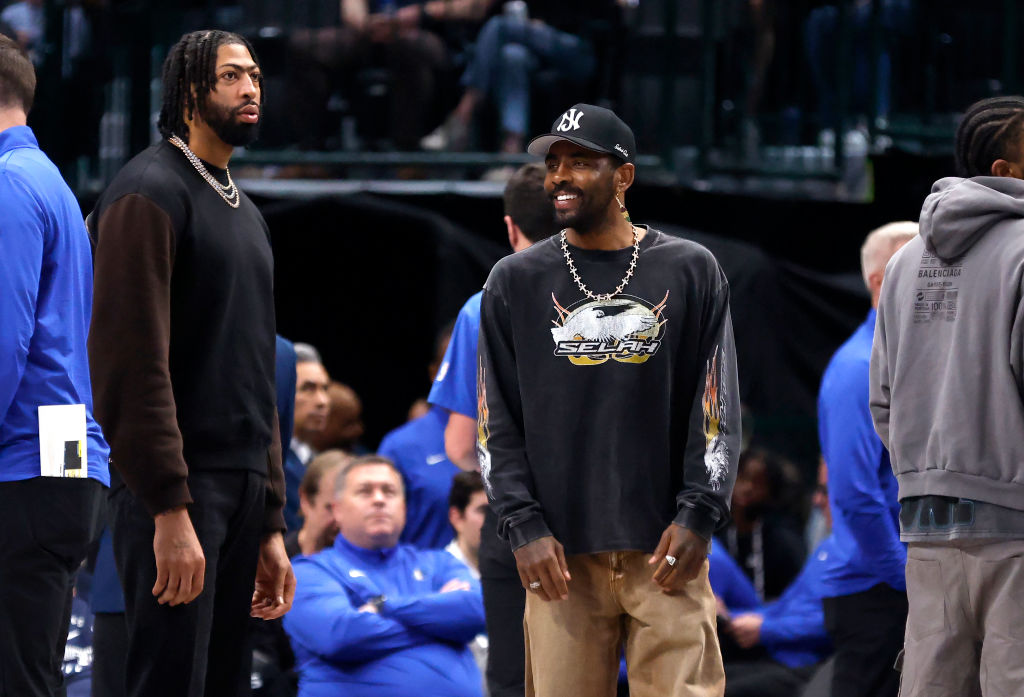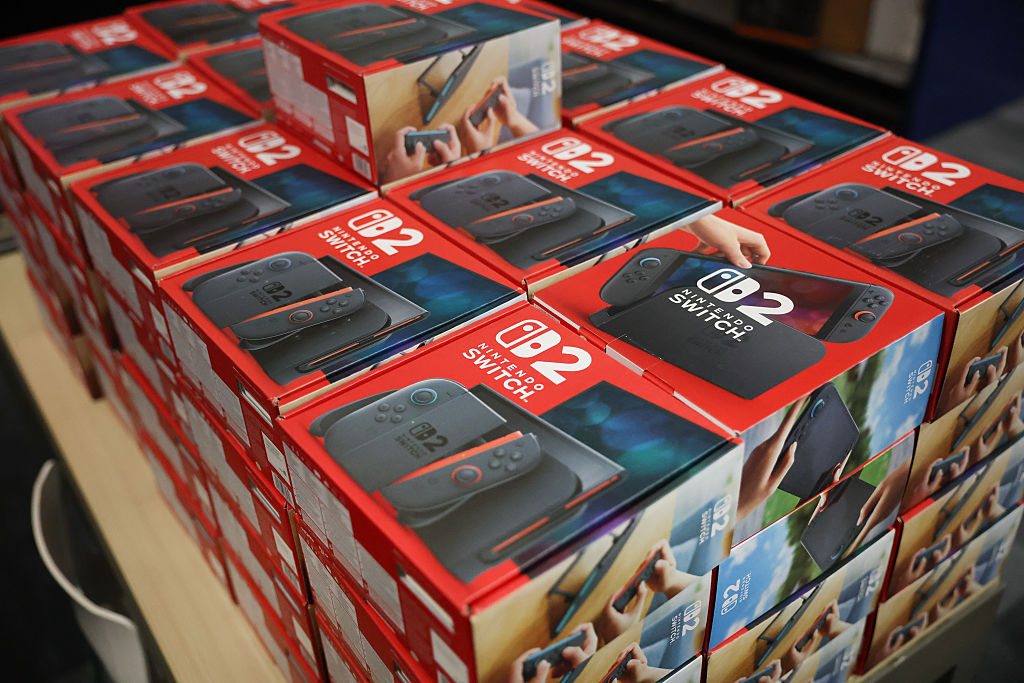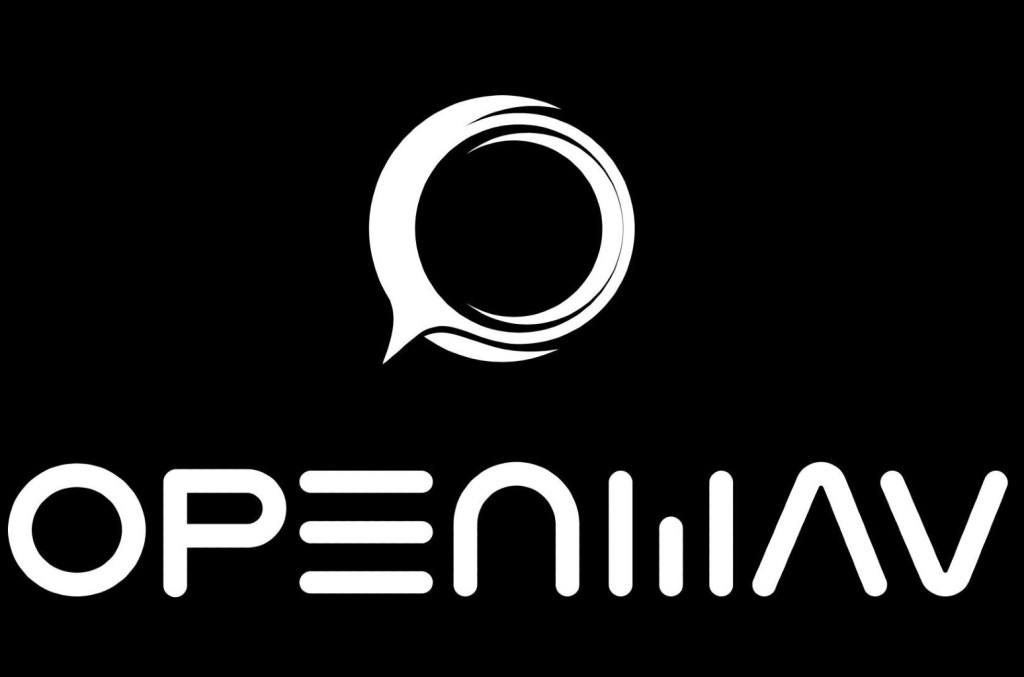tech
Page: 8
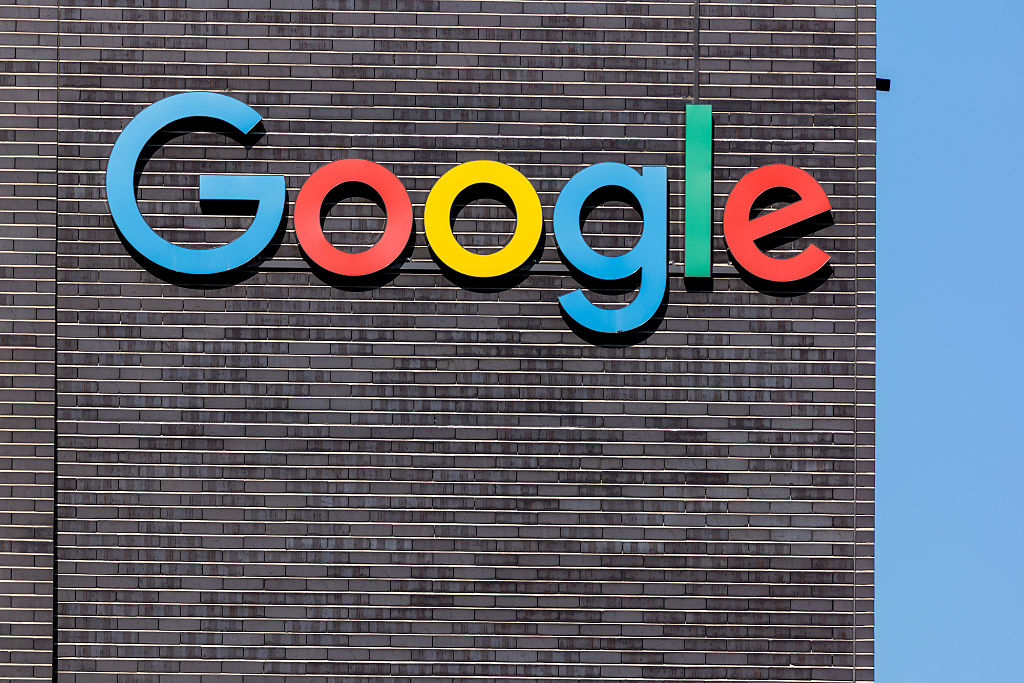
Source: picture alliance / Getty / Alphabet / Google
You were not bugging if your Spotify, Gmail, or Discord was acting funky today. Google confirmed there was a massive Google Cloud outage affecting those other services and more.
The Times of India reports that Alphabet’s Google Cloud experienced a widespread outage, affecting tens of thousands of users across various platforms.
According to reports, platforms such as Spotify, YouTube, Google Meet, Snapchat, Shopify, Discord, and Switch all suffered some form of service disruptions.
Google confirmed the outage, noting that numerous products were experiencing service disruptions. The company wrote on its status page, “Our engineers are continuing to mitigate the issue, and we have confirmation that the issue has recovered in some locations.” Google did not provide a time for a resolution at the time.
Per Times of India:
Downdetector, which tracks outages based on user reports, recorded over 10,000 incidents related to Google Cloud and more than 44,000 reports for Spotify around 2:46 p.m. ET in the U.S. Additionally, users reported over 4,000 incidents each for Google Meet and Google Search, and more than 8,000 for Discord.
Cloudflare, which also reported an outage on Thursday, clarified through spokesperson Alexander Modiano that its core services were unaffected, attributing the issue to Google Cloud’s disruption.
Spotify users took to X, formerly Twitter, to voice their displeasure. You can see those reactions in the gallery below.
HipHopWired Featured Video
CLOSE
Ron Jenkins / Kyrie Irving
Kyrie Irving wants to bring his gaming talents to FaZe Clan.
For those who don’t know, Kyrie Irving streams when he’s not on the court, showcasing his crafty dribbling skills that break ankles.
During one of his recent streams, Irving was on the phone with a member of FaZe Clan, the once-uber-popular esports and influencer brand, which has seen better days and expressed interest in joining the team.
“I was wondering if y’all are taking applications,” the all-star Dallas Mavericks point guard said. “I don’t really know how that shit really goes, bro.”
Needing some serious star power like Irving, the person on the other end of the phone took Irving’s inquiry into joining the team positively, and the official account for FaZe Clan on X, formerly Twitter, shared a photoshopped image of the NBA champion wearing a FaZe Clan jersey.
If Irving does officially join FaZe Clan, he would follow in the footsteps of other big names like Bronny James, Offset, Snoop Dogg, Lil Yachty, and Ben Simmons, who are seemingly no longer a part of the organization.
So if Irving does decide to join officially, he would be the biggest name on the squad.
Kyrie Irving Wants People To Stop Making Fun of Karl-Anthony Towns’ Voice
That’s not all that went down during the stream. Irving also defended his close friend Karl-Anthony Towns, urging fans to stop making fun of him for “changing up his tone.”
“Y’all gotta stop making fun of my brother KAT. I’m done with y’all,” Irving told viewers of the stream.
“Stop making fun of my brother KAT. It’s over for that, it’s a fuckking wrap, I’m letting you know that if you repost that shit again or meme him up, I’m attacking you. Not like that physically, GTA, but I’m attacking you.”
Irving also alluded to Kat’s upbringing in New Jersey as a reason people should back off.
“Y’all gotta leave KAT alone because y’all don’t know what it’s like to grow up in Jersey and have all of these cultures that you’re a part of, trust me on that,” said Irving. “Jersey is literally 130 miles long, it’s (a) very, very small state … but leave him alone.”
“Because he’s Dominican, he’s black, he grew up in a certain area in Jersey, just like me, and you gotta survive out here,” Irving continued. “You got many different demographics of people, so you gotta survive out here. I don’t agree all the time when he be changing up his tone sometimes, I don’t always agree and all that shit, that shit be funny, but on a serious note, he is a man, he is my brother and I protect him all the time.”
HipHopWired Featured Video
Joe Raedle / Nintendo Switch 2
So far, Nintendo is meeting the demand and has moved a record number of Switch 2 consoles.
The company proudly announced that it was able to get a record 3.5 million Nintendo Switch 2 consoles into the hands of gamers.
If Nintendo can maintain this torrid pace, it can reach its goal of selling 15 million Switch 2 units by March 2026, but that also depends on whether Nintendo can continue to produce the consoles to meet the demand that will undoubtedly continue to grow.
The Switch 2 is currently outpacing the sales of the first Switch console, and it’s not even close. The original Switch needed a month to reach 2.7 million units sold.
Additionally, it appears that the Switch 2’s higher $450 price tag compared to its predecessor’s $300 isn’t deterring gamers at all.
“Fans around the world are showing their enthusiasm for Nintendo Switch 2 as an upgraded way to play at home and on the go,” said Nintendo of America President and Chief Operating Officer Doug Bowser. “We are thankful for their response and happy to see the fun they are already having with Nintendo Switch 2 as they explore new features and games that bring friends and family together in new ways.”
The Threat of Donald Trump’s Tariffs Still Looms Over Nintendo’s Business
The company that Mario built isn’t letting the current success get to its head. The threat of Trump’s tariffs still looms and could prompt the company to raise the console’s price, potentially slowing sales.
The Japanese-based company has already taken several provisions, such as stockpiling the Switch 2 in the United States, while shifting non-Chinese output.
The Switch 2 launch didn’t go off without a hitch; some customers missed out when demand exceeded the company’s expectations. President Shuntaro Furukawa ordered Nintendo to boost production in response.
We shall see if Nintendo can continue to push out Switch 2 units throughout the year.
HipHopWired Featured Video
To draw his K-pop fan army onto the new OpenWav app, pop singer Kevin Woo schooled his nearly 4.4 million social-media followers on how it works. Then he sold stuff to them: $10,000 worth of hoodies and water bottles and $1,200 worth of tickets to a Los Angeles listening party in March for his single “Deja Vu.”
“It’s very refreshing,” says Woo, formerly of hit boy band U-KISS. “It gives me so much freedom to do what I want and not have to stress about ‘Where am I going to get my next paycheck? How do I know when the label’s going to pay me out?’”
OpenWav, co-created by tech entrepreneur Jaeson Ma, who co-founded influential label 88rising and was an early investor in what became TikTok, launches Wednesday (June 11) with a splashy Indie Music Week party in New York attended by Ma and artist/OpenWav executive Wyclef Jean. It’s one of many platforms designed to help indie artists reach their most devoted followers and participate in a superfan market that Goldman Sachs predicted could reach $4 billion over the next five years. The app joins a crowded market that includes SoundCloud’s “fan-powered royalty” system and a long-promised Warner Music Group (WMG) app that launched a test version starring Ed Sheeran in April.
Trending on Billboard
Ma’s invention, which has drawn $30 million from investors such as WMG and CAA’s Connect Ventures, has an all-in-one smartphone interface that allows artists to stream new songs and videos, sell tickets and quickly design (through the use of AI tools), sell and ship merch. Ma spent two years setting up an international network of 200 factories that accommodate orders of any size. “I can put my design on a premium hoodie that’s like Yeezy off-white level, and if one fan buys that hoodie, we will make it and ship it to their doorstep directly — with zero inventory,” Ma says. “It’s pretty crazy what we’ve been able to do.”
“I call this the Gen-Z Sears catalog,” Ma says on a Zoom as he scrolls through the custom golf balls, water bottles and other products available through the app. “I don’t want to say we’re faster than Amazon or Alibaba — we’re not faster. We’ve built a similar supply-chain ecosystem and made it specifically to be on-demand for artists and creators.”
In a music business where few artists can make a living from streaming revenue alone, and must tour, sell merch and develop sizable loyal fanbases to buy their products, “superfan” has become a gold-rush buzzword. (OpenWav fits this category even though Ma avoids using the term “superfan app.”) In March, Australian producer Alan Walker launched an app designed to interact more directly with fans than he could on Instagram or TikTok; Boston metal band Ice Nine Kills’ app, Psychos Only, offers exclusive merch and exclusive ticket pre-sales with a $7 monthly membership fee.
“This started out several years ago with Patreon, and we learned that for premium content, fans will pay if you create something valuable,” says Dan Tsurif, vp of digital marketing for 10th Street Entertainment, Ice Nine Kills’ management company.
Ma’s bet for OpenWav is that dedicated fans will pay $10 a month — “a Starbucks coffee,” he says — and 1,000 of them will provide each participating artist with $120,000 in annual salary. But some in the music business wonder whether such artist-to-fan tools will be relevant for a broad range of artists. K-pop stars like Woo benefit from a loyal fanbase built meticulously over years of savvy music-company marketing, and veteran touring stars from Taylor Swift to Umphrey’s McGee have spent decades building fanbases on the road, but everyone else may struggle on this kind of app.
“In K-pop, they’re already obsessive about collecting things and buying merch. With a touring artist, they’re used to buying VIP [tickets] or merch,” says Aidan Schechter, a partner at management and publishing company 1916 Enterprises and founder/CEO of management music-tools venture Patchbay. “I don’t think artists and artist teams are able to keep up with the demands of consistent posting and exclusive content creation on a lot of these apps. Artists and their teams don’t have enough stamina.”
For Woo, 33, who came up in the South Korean K-pop industry, OpenWav is a crucial tool for remaining independent. The app, which he has been beta-testing most of this year, pays 80% of merch and ticket sales to the artist and keeps 20%. Woo says OpenWav allows him access to all his sales data and analytics — he has used it, for example, to discern that he has a surprisingly large listener base in Austin, Texas, leading him to a recent South by Southwest showcase.
“I’ve been in a K-pop boy band for over a decade, and knowing how the whole system worked, I wanted to start my own venture,” he says. “As I started to learn more about the app, I fell in love with how easy and seamless it was. It’s like TikTok meets Spotify.”
Justin Sullivan /Waymo
Using Waymo in downtown Los Angeles got a bit harder due to the ongoing protests against ICE’s immigration raids.
Spotted on USA TODAY, Waymo has announced it has suspended its service in the downtown Los Angeles area after several of its vehicles were destroyed.
A spokesperson for Waymo said the company was pulling vehicles out of DTLA and would not be providing ride-hailing service to the area “out of an abundance of caution.”
The company decided several videos showing Waymo driverless taxis set ablaze and defaced with anti-ICE and Trump messages hit timelines.
As Expected, Donald Trump Is Abusing His Power
In response, without alerting Governor Gavin Newsom, Cheetoh Mussolini federalized the National Guard, ordering them to put a stop to the protests against Trump’s war on immigration.
Governor Newsom has called Trump’s action reckless and irresponsible, and has already begun the steps to take legal action against the Trump administration.
Signal abuser, and our currenct Secretary of Defense Pete Hegseth added that he is ready to send marines if necessary, basically a move to kiss his dear’ leaders ass.
On X, formerly Twitter, Newsom had plenty to say on the matter.
“U.S. Marines serve a valuable purpose for this country — defending democracy. They are not political pawns. The Secretary of Defense is illegally deploying them onto American streets so Trump can have a talking point at his parade this weekend. It’s a blatant abuse of power. We will sue to stop this. The Courts and Congress must act. Checks and balances are crumbling. This is a red line — and they’re crossing it. WAKE UP!” Newsom wrote on his personal X account.
We only expect these protests to spread across the country as ICE continues to terrorize immigrants on claims that they are “removing dangerous illegal aliens.”
HipHopWired Featured Video

All products and services featured are independently chosen by editors. However, Billboard may receive a commission on orders placed through its retail links, and the retailer may receive certain auditable data for accounting purposes.
JBL just tapped Benson Boone as its newest global brand ambassador. The breakout singer/songwriter pairing with the music and gaming tech brand is pretty much the perfect match, given both are committed to all things sound, culture and connection.
Explore
Explore
See latest videos, charts and news
See latest videos, charts and news
To make the partnership official, Boone went out to surprise fans outside of JBL’s SoHo store before taking the stage at the 2025 Governors Ball. The “Beautiful Things” singer pulled up in a vintage convertible car blasting tracks from his album American Heart before handing out custom JBL Flip 7s from the trunk.
This exciting partnership will feature exclusive content drops, behind-the-scenes moments and live activations designed to bring fans closer to Boone and his music through JBL. In honor of Boone and JBL’s partnership, we’re rounding up a few of our favorite music and gaming tech from JBL, sharing the best of the best for fans of Boone and beyond.
Trending on Billboard
JBL Go 4 Speaker
$39.95
$49.95
20% off
A portable mini speaker in green and gray with powerful base.
Don’t you wish you could take your music with you everywhere? Well, now you can. Retailing for $39.95, JBL’s Go 4 Speaker is a tiny but mighty speaker situated in a compact rectangular shape in shades of gray and green. The speaker is portable and packs a major punch with base you can feel. This little guy boasts up to seven hours of playtime on a single charge.
It also comes with Playtime Boost which allows for up to two extra hours of jamming by prolonging the battery life. Not only does the speaker change color, but it’s also waterproof so you can take it to the beach or pool without fear of having it fizzle out. If the available colors don’t tickle your fancy, you can also make a custom Go 4 with a base design of your choosing.
JBL Quantum Stream Studio Mic
$99.95
$149.95
33% off
A gaming and podcasting speaker.
If you’re planning to stream video games or starting a podcast (as if we need any more) then this mic is for you. Retailing for a marked-down price of $99.95, this studio mic is a steal. The crisp sound is all thanks to three lightweight, fast-moving, and sensitive (-37dB) 14mm cardioid condenser mics, all with a wide and flat frequency range (50~16kHz).
You’ll get studio-quality sound every time. With a click of a single button, you can quickly change between four voice-pickup patterns, cardioid, bi-directional, stereo and omnidirectional which are all utilized for different set-ups and scenarios. There’s also a tap-to-mute button that you can quickly touch if you feel an awkward sneeze coming on mid-stream. This mic truly has it all.
JBL Spinner BT
A black and orange record player.
Play records like a pro with JBL’s Spinner BT, a sleek, retro-inspired record player that comes in two colorways, black and orange and black and gold. The Spinner BT is Bluetooth compatible and features a high-quality aluminum tonearm that ensures excellent tracking of the record groove without damaging your precious vinyl. Plus the design is gorgeous. We like the black and orange model for the beautiful contrast in hues. This makes for a great gift for that hipster music nerd in your life.
JBL Junior 470NC
Over-the-ear headphones with gray, white and orange accents.
JBL’s Junior 470NC is an exceptional piece of music tech for kids. Easy to use and safe to boot, these over-the-ear headphones feature a controlled safe volume designed to never exceed 85dB so kids can listen to “Baby Shark” with the highest sound quality without damaging their precious eardrums. Parents can also customize hearing protection settings by limiting both maximum volume and daily listening time. These headphones can also be synced to the JBL Headphones app so you can monitor your child’s listening, and at what volume.
JBL PartyBox Stage 320
A rolling light-up speaker with a handle.
This portable speaker is bold and bigger than ever, providing music lovers with impeccable sound quality they can bring on the go. Retailing for a marked-down price of $549.95, the PartyBox Stage 320 brings the party anywhere thanks to the wheel attachments and telescope handle that functions similarly to a suitcase. The speaker includes a built-in light show with effects like starry lights, cool light trails and a strobe that all flash to the beat of the song playing. The speakers are also equipped with two 6.5″ woofers that deliver clean and precise deep bass no matter the volume.

The three major music companies — Sony Music, Universal Music Group and Warner Music Group — are in talks with AI music companies Suno and Udio to license their works as training data, despite suing the two startups for infringement “on an almost unimaginable scale” last summer. Now, executives in the “ethical” or “responsible” AI music space are voicing displeasure that the alleged infringers could potentially benefit from their actions.
Several of those ethical AI companies said they were led to believe they would be rewarded by the record labels for going through the tough process of licensing music from the beginning, in what one AI music company founder previously told Billboard would be “a carrot and stick approach to AI,” penalizing those who raced ahead and trained models without permission or compensation.
Trending on Billboard
“That’s all out the window,” that founder says now. “I was talking to another founder that does ethical AI voice models, and he told me, ‘F–k it. I don’t care anymore. Why does it matter to be ethical if we just get left behind?’”
Ed Newton-Rex, founder of non-profit Fairly Trained, which certifies ethically-trained AI models, adds: “If I were running a startup that had tried to do the right thing — respecting creators’ rights — and investors had rejected me because I wasn’t exploiting copyrighted work like so many others, and then this happened? I’d definitely be pissed off.”
Tracy Chan, CEO of AI music company Splash, told Billboard via email that she stands by her decision to license music from the start. “At Splash, being ethically trained wasn’t a debate — it was obvious,” she says. “We’re musicians and technologists. We believe AI should amplify creativity, not exploit it. We don’t need to scrape the world’s music to make that happen.”
It remains unclear how far along these licensing talks are between the major music companies and Suno and Udio, and if deals will even come to fruition to avert the blockbuster lawsuits. It’s common in costly and lengthy litigation like this for the two sides to discuss what it would look like to settle the dispute outside of court. Plus, licensing is what the majors have wanted from AI companies all along — does it matter how they come to it?
Multiple executives expressed fear that if the majors ditch the lawsuit and go for deals, they will set a bad precedent for the entire business. “Basically, if they do this deal, I think it would send a message to big tech that if you want to disrupt the music industry, you can do whatever you want and then ask for forgiveness later,” says Anthony Demekhin, CEO/co-founder of Tuney.
This, however, is not the first time the music business has considered a partnership with tech companies that were once their enemy. YouTube, for example, initially launched without properly licensing all of the music on its platform first. In his 2024 New Years’ address to staff, Lucian Grainge, CEO/chairman of UMG, alluded to this, and how he would do it differently this time with his so-called “responsible AI” initiative. “In the past, new and often disruptive technology was simply released into the world, leaving the music community to develop the model by which artists would be fairly compensated and their rights protected,” he wrote, adding that “in a sharp break with the past,” UMG had formed a partnership with YouTube to “give artists a seat at the table” to shape the company’s AI products, and that the company would also collaborate “with several [other] platforms on numerous opportunities and approaches” in the AI space.
Another part of Grainge’s “responsible AI” initiative was “to lobby for ‘guardrails,’ that is public policies setting basic rules for AI.” Mike Pelczynski, co-founder of ethical AI voice company Voice-Swap, also worries that if these deals go through, they could weaken the music industry’s messaging to Capitol Hill, where bills like the NO FAKES Act are still in flux. “All the messaging we had before, all the hard-lining about responsible AI from the beginning, it’s gone,” he says. “Now, if policy makers look at [the music business] they might say, ‘Wait, what side should we take? Where do you stand?’”
If talks about licenses for Suno and Udio move forward, determining exactly how that license works, and how artists will be paid, will be complex. To date, almost all “ethical” AI companies are licensing their musical training data from production libraries, which offer simple, one-stop licenses for songs. Alex Bestall, CEO of music production house and AI company Rightsify, says that the structure of those deals are typically “flat-fee blanket licenses for a fixed term, often one to three years or in some cases perpetuity… all data licensing [music or otherwise] is pretty standardized at this point.”
It’s unclear if the deals the majors have discussed with Suno and Udio will follow this framework, but if they did, the question then comes — how do the majors divide up those fees for their artists and writers? The Wall Street Journal reported that “the [music] companies want the startups to develop fingerprinting and attribution technology — similar to YouTube’s content ID — to track when and how a song is used.” In that scenario, the money received would be given to signees based on usage.
While there are a few startups working on music attribution technology right now, multiple experts tell Billboard they don’t think the tech is ready yet. “Attribution is nowhere,” says Newton-Rex, who also previously worked as vp of audio at Stability AI. “It’s not even close. There’s no system that I have seen that would do a decent job of accurately assigning attribution to what has inspired a given song.”
Even the possibility of deals between the parties has sparked a larger conversation about how to handle tech companies who ask for forgiveness — and not for permission — from the music business.
“If the two biggest offenders actually become the legal standard, it’s effectively like making Pirate Bay into Spotify,” says Demekhin. “I understand it from a business perspective because it’s the path of least resistance [to settle and get a license now]. But this could send a message to tech that could bite the industry on the next wave.”
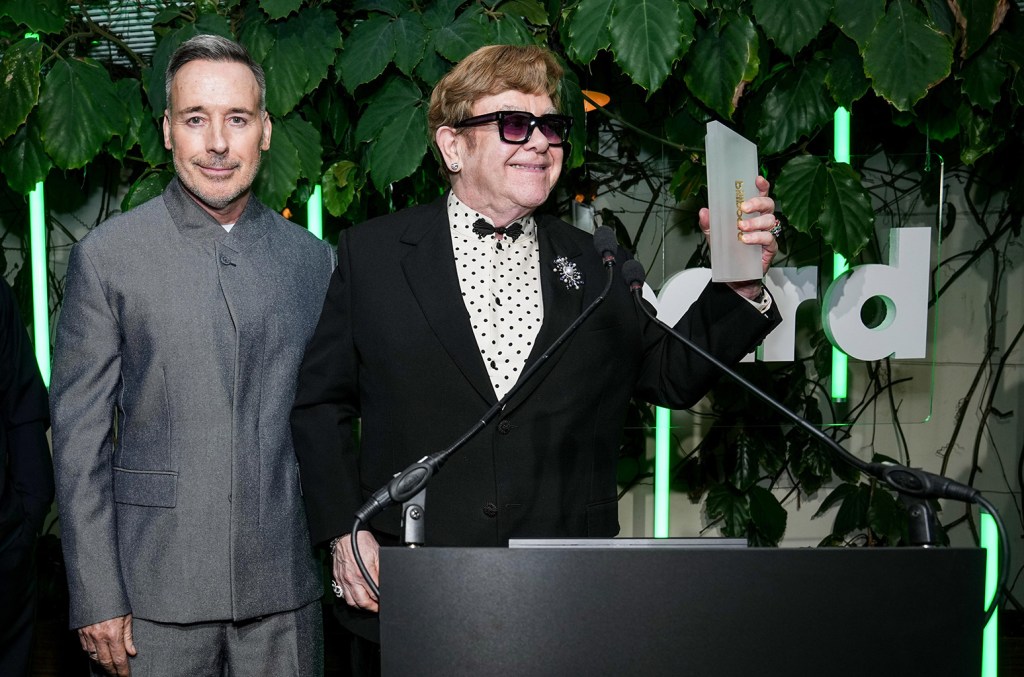
Sir Elton John collected the Creators’ Champion Award at Billboard’s Global Power Players event in London on Wednesday (June 4) and used his speech to warn the U.K. government that “we will not back down” in relation to its controversial AI data bill.
Joined by his manager and husband David Furnish, John was awarded the inaugural trophy by Billboard editor-in-chief Hannah Karp in recognition for standing up for the creative industry and calling for fair usage and protections for music rights holders in relation to AI models.
As referenced in John’s speech, the Labour government’s data bill – which proposes an opt-out approach for rights holders, as opposed to the preferred opt-in strategy – has been voted down by the House of Lords for an unprecedented fifth time. Led by Baroness Kidron, the ping-pong between the Houses of Commons and the upper house has lasted for weeks and resulted in John calling the government “absolute losers” in a recent interview.
Trending on Billboard
Taking to the stage, John thanked Billboard for the accolade as he was honored alongside other industry leaders such as Empire’s Ghazi and Tems on the night. “Supporting the next generation of British artists is the one of the major driving forces in my life,” he said and thanked the Lords who backed the amendment saying “you rock.”
He continued: “The onus is now on the government to do the right thing and have transparency added to the bill. We’ve asked them so many times to come to us. We’ve had so many meetings with them saying that we wanted to work with you.
“Copyright has to be transparent and seek permission,” he continued. “These two principles are the bedrock of the industry and they must be included in the data bill as a backstop. Let’s be clear: We want to work with the government, we want our government to work with us. We are not anti-AI and we are not anti-Big Tech.”
John added in his passionate speech: “We are not against Labour and we want a solution. We want to bring all parties together in a way that is transparent and fair and allows artists to maintain control of their work.” He concluded: “We will not back down and we will not go away quietly. This is just the beginning.”
Read the full speech below.
Elton John’s full speech at Billboard‘s Global Power Players event
“Thank you to Billboard for honoring myself and David with this incredible award. Supporting the next generation of British artists is one of the major driving forces in my life. It’s so important. As everyone in this room is aware, the data bill is currently looming over us and our musicians and our industries and the future of the livelihood of all artists.
It is an existential issue. In the last few hours the government has been defeated for an unprecedented fifth time by the House of Lords – that’s never happened before. The Lords, who have backed our crucial amendment to the bill – thank you so much – you rock.
The onus is now on the government to do the right thing and have transparency added to the bill. We’ve asked them so many times to come to us. We’ve had so many meetings with them saying that we wanted to work with you. I voted for you, you promised me that you wanted to get young artists into Europe. I did a show for you and to get more finance into the country and investment. I did a show at St Paul’s Cathedral… and we’ve heard nothing.
Copyright has to be transparent and seek permission. These two principles are the bedrock of the industry and they must be included in the data bill as a backstop. Let’s be clear: we want to work with the government, we want our government to work with us. We are not anti-AI and we are not anti-Big Tech.
We are not against Labour and we want a solution. We want to bring all parties together in a way that is transparent and fair and allows artists to maintain control of their work. It’s so fucking important. A machine is not a human being; it doesn’t have a soul. An artist when they create or they write or they sculpt or they paint or they photograph has a soul, it’s coming from the feeling of a person. And it’s so important if we ever lose that, we are well and truly fucked.
We will not back down and we will not go away quietly. This is just the beginning and thank you Billboard and Baroness Kidron for standing up for our world beating artists and journalists and playwrights and authors.
Let’s put it like this: The entertainment industry brings £125 billion to the United Kingdom and is the second biggest industry in this Great Britain. And they are treating us like shit. They are treating us like idiots. They have their head in the sand. The Labour government at the moment should be called the Ostrich Party. I will fight for this until it’s done and people have a fair deal. Every young artist or new person who writes a song, I want them to have a future and have their copyright respected.
There’s 2.4 million people in this industry in Britain, and 70% of them live outside of London. This isn’t a case of wealthy London people, this is a nationwide thing. Please listen to us, government. If you don’t, there’s going to be trouble. If you don’t, I will come banging on your door. But let’s get together: give me a call! Let’s have a cup of tea! So far, you haven’t responded to anything we’ve suggested. Thank you!”
“A Million Colors” by Vinih Pray has become the first-known AI-generated song to hit the TikTok charts. Currently sitting at No. 44 on the TikTok Viral 50, the doo-wop inspired song was generated using the popular AI music platform Suno, the company has confirmed.
While this marks the first AI-generated song to hit the TikTok charts, there was one previous song on the TikTok charts that was human-made but contained an AI-generated sample. In the summer of 2024, “U My Everything” by Sexyy Redd, featuring Drake — which sampled the AI-generated song “BBL Drizzy” — peaked at No. 2 on the TikTok Top 50, but the most common sound clip used from “U My Everything” did not feature that sample.
With over 371,700 creates on TikTok, 819,745 streams on Spotify, 161,000 views on YouTube, “A Million Colors” sounds so realistic that it has fooled a number of unsuspecting users. One of the most popular celebrities on the platform, Kylie Jenner, recently posted a makeup tutorial with the AI-generated song in the background, earning her 1.5 million likes.
Trending on Billboard
Some TikTok users, however, have started catching on. On “A Million Colors” sound page, a number of videos are being made by users to call out its use of AI. This likely traces back to a popular video by @americangorls, who wrote in a post on May 10 “this song having hundreds of thousands of uses and I haven’t seen anyone talking ab the fact that this is 100% ai is freaking me out a little. am i crazy[?]”
According to his Spotify bio, Pray, the artist who posted “A Million Colors,” was born in Rio de Janeiro, Brazil and is “making waves in the Brazilian music scene,” and that “in addition to his solo career, [Pray] has collaborated with several renowned artists,” although it does not state who those artists are. He releases music at a quick pace — since he started posting to the page in April 2024, Pray has released over 110 songs to Spotify and other platforms in a variety of languages, including Korean, English, Portuguese and Mandarin. Most songs contain different voices, and it is unclear if any are using Pray’s own voice. It is also unclear how many of these songs are AI-generated or human-made.
Pray and TikTok have not replied to Billboard’s request for comment.
With “A Million Colors,” Pray positions himself among a growing class of AI music content creators on the internet. King Willonius, the artist who used Udio to generate “BBL Drizzy” posts a number of AI-generated parody songs to his 56,000 followers on Instagram. Another popular AI music poster, AI For the Culture, has garnered 150,000 subscribers on YouTube for his work, which includes AI-generated period music, paired with an AI image and a fictional artist bio to humanize the track. One of his songs, “Turn On The Lights” — which used AI to reimagine a Future’s “Turn On The Lights” as 1970s soul — was sampled in JPEGMAFIA‘s “either on or off the drugs” last year.
AI music company Suno has debuted a number of new features, allowing users to have more control over the creation and customization of their songs. The company has been known as a powerful generative tool that can make realistic songs at the click of the button with just a few simple prompts, but now, it is embracing more of a collaborative approach between the user and its AI technology.
Now, users can upload up to eight minutes of audio, whether its a hummed melody or a mostly-completed track, and then use Suno to remix it or expand it. Through their new Song Editor features, users can replace lyrics and reimagine sections of songs, as desired. Offering what it calls the “creative slider” users can rework a song into a new genre by using simple toggles that can up a song’s “weirdness” “style strength” or “audio strength.”
The company has also integrated a stem extraction tool to split a Suno-generated song into 12 clean stems, which can then be exported to a user’s preferred DAW.
Trending on Billboard
Suno CEO/founder Mikey Shulman says of the new features: “We envision Suno as a core part of musical creativity, for everyone from novices to Grammy winners. Our new tools offer powerful ways to explore new sonic ideas, remix, and iterate. Our upgraded editing suite gives artists more control than ever over their music.
We’re also working to better integrate Suno into the music production process. For example, Suno’s new stem extraction feature allows artists to more easily bring what they do with Suno into their favorite DAW, and vice versa. We’re excited to keep building tools like these to augment the creativity of musicians and expand access to serious music making.”
The announcement comes just a couple days after news broke that Suno, and its competitor Udio, are in talks with the major music companies — Sony Music, Universal Music Group and Warner Music Group — about licensing their copyrights for AI training. This may include the majors receiving some equity in the two AI music firms, as they have done in previous licensing agreements with new tech companies, like Spotify.
Last summer, Sony, Universal and Warner came together to sue Suno and Udio for copyright infringement of their sound recordings “at an almost unimaginable scale” to train their AI music models. If these licensing deals were to go through, it would likely lead to a settlement of the lawsuits.

 State Champ Radio
State Champ Radio 